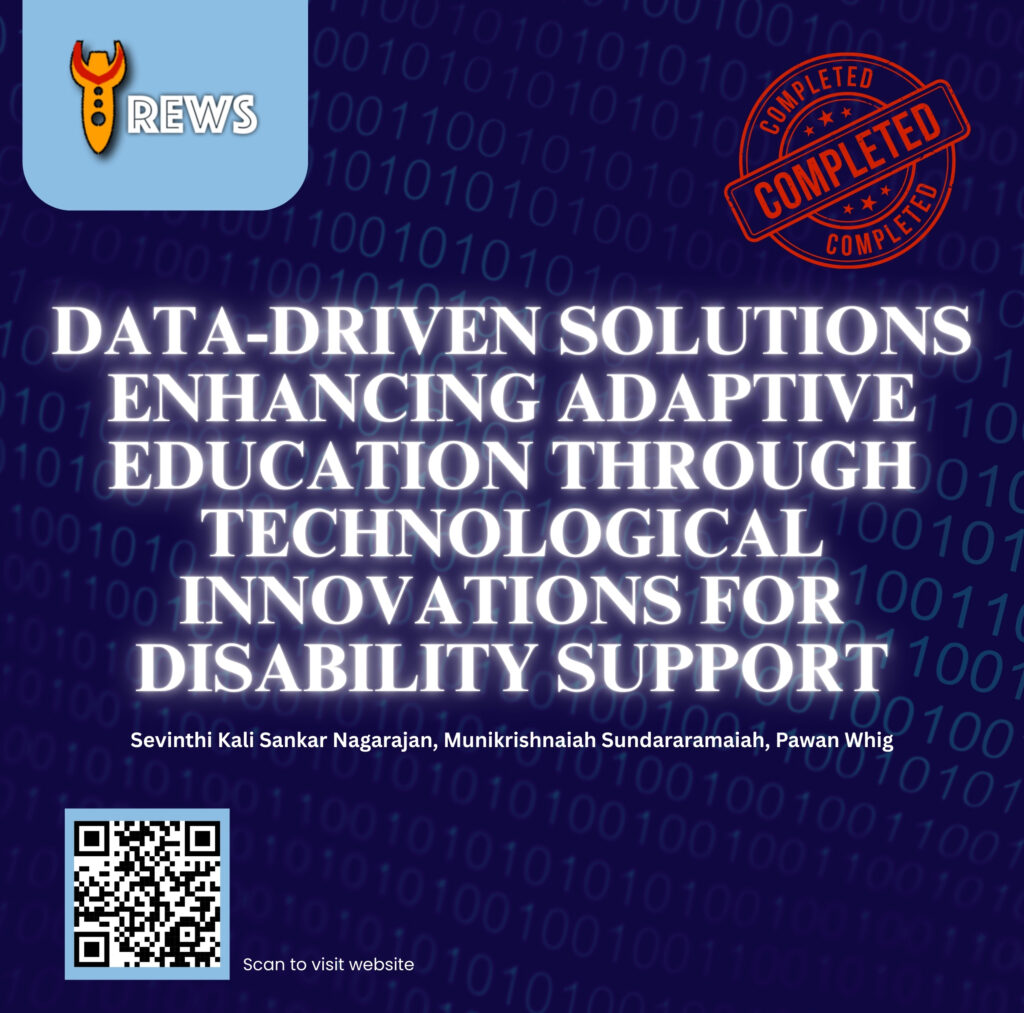Transforming Adaptive Education with Data-Driven Strategies
It explores the transformative impact of data-driven solutions in advancing adaptive education for students with disabilities. By utilizing advanced data analytics, educators can create personalized, inclusive learning environments that address the specific needs of diverse learners.

Harnessing Data Analytics to Personalize Learning
Data analysis techniques are revolutionizing how we understand and support students with disabilities by:
-
Identifying individual learning patterns and challenges through behavioral and performance data.
-
Developing customized educational interventions based on real-time insights.
-
Continuously adapting learning environments to maximize student engagement and achievement.
Innovative Data Collection Methods for Inclusive Education
1. Learning Analytics and Behavioral Data
-
Collecting and analyzing student engagement metrics (time on task, interaction types, etc.)
-
Using progress tracking tools to monitor academic development.
-
Applying predictive analytics to anticipate support needs and intervene early.
2. Technology-Enabled Personalization Tools
-
AI-powered platforms that dynamically adjust content difficulty.
-
Adaptive assessments that tailor questions based on student responses.
-
Visualization dashboards to help educators make informed decisions.
Case Studies: Real-World Implementation of Data-Driven Education
This chapter presents practical examples and case studies that demonstrate how data-driven strategies have been successfully applied in special education contexts to:
-
Enhance accessibility and engagement for students with disabilities.
-
Improve academic performance and retention.
-
Support educators in delivering evidence-based interventions.
Fostering Equity Through Data-Driven Educational Innovation
By integrating data analytics into educational systems, institutions can promote equity, inclusivity, and improved learning outcomes. However, ethical considerations around data privacy, informed consent, and bias mitigation must be addressed to ensure responsible implementation.
Data-driven solutions offer a promising path toward more effective, inclusive, and personalized education. As technology evolves, these tools will play a critical role in supporting students with disabilities, empowering educators, and shaping the future of accessible learning.
Authors:
Sevinthi Kali Sankar Nagarajan, Munikrishnaiah Sundararamaiah, Pawan Whig
For more details, visit: ResearchGate Link

